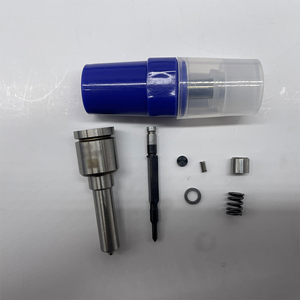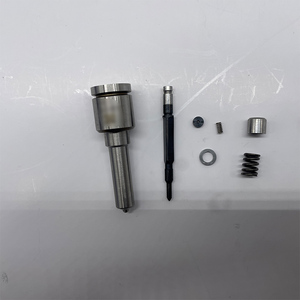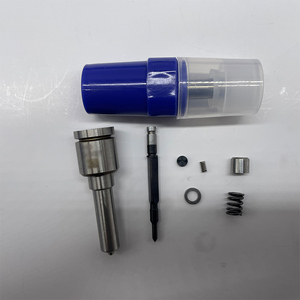
All categories
Featured selections
Trade Assurance
Buyer Central
Help Center
Get the app
Become a supplier

(888 products available)






































The Launch CNC 402A injector tester is a critical tool used in the maintenance and servicing of automotive fuel injection systems. Its primary function is to test and analyze the performance of fuel injectors to ensure they atomize fuel correctly and maintain optimal engine performance. There are several types of Launch CNC 402A injector testers, each designed to meet specific requirements and use cases. Here are some of them:
Manual Launch CNC 402A Injector Tester
The manual Launch CNC 402A injector tester is a basic and cost-effective model. It uses a hand pump to generate pressure and test fuel injectors. Technicians manually control the fuel flow and injector spray patterns using knobs and valves. This model is suitable for simple injector testing, but it requires more time and effort to operate manually.
Digital Launch CNC 402A Injector Tester
The digital Launch CNC 402A injector tester is a more advanced model equipped with digital displays and electronic controls. It can automatically measure fuel flow rates, pressure, and spray patterns. Some digital models may also have programmable test cycles, allowing for more precise and consistent injector testing. Technicians can save time and improve accuracy by automating these processes.
Launch CNC 402A Multi-Channel Injector Tester
The Launch CNC 402A multi-channel injector tester can simultaneously test multiple fuel injectors, making it highly efficient for high-volume workshops. These models usually have several injector connectors and testing channels, allowing technicians to evaluate the performance of multiple injectors in one go. Multi-channel fuel injector testers save time and improve productivity, making them suitable for large-scale automotive maintenance operations.
Launch CNC 402A Ultrasonic Injector Cleaner
The Launch CNC 402A ultrasonic injector cleaner combines injector testing with ultrasonic cleaning functions. It uses ultrasonic waves to generate high-frequency vibrations in the cleaning liquid, effectively removing carbon deposits and contaminants from the surfaces of fuel injectors. This dual function ensures that injectors are tested for performance and cleaned thoroughly, restoring their optimal functionality.
Portable Launch CNC 402A Injector Tester
Some models of the Launch CNC 402A injector tester are designed to be compact and portable. They are lightweight and come with carry cases or protective housings. Portable fuel injector testers are suitable for on-site vehicle inspections and diagnostics, allowing technicians to conduct injector tests and evaluations anytime, anywhere.
The following are the specifications of the Launch CNC 402A injector tester:
Test Method
The Launch CNC 402A injector tester uses a variety of methods to test fuel injectors. With this device, both the static and dynamic testing of fuel injectors is possible. During static testing, the fuel injectors are examined when they are not working. On the other hand, dynamic testing involves examining fuel injectors while they are working.
Voltage Control
Voltage control is an important feature of the Launch CNC 402A injector tester. This device comes with a voltage control feature of between 0 to 100V and a voltage resolution of 1V. As a result, users can enjoy more accurate and convenient tests.
Temperature Control
The temperature feature of this injector tester is between 0 to 50 degrees Celsius. It also has a temperature resolution of 1 degree Celsius.
Flow Rate Measurement
The flow rate measurement of the Launch CNC 402A injector tester is between 10 to 2000cc/min. The flow rate resolution is 1cc/min.
Launch CNC 402A Maintenance Tips
To keep the Launch CNC 402A in good working condition, it is important to perform regular maintenance. One of the maintenance tips is to always keep the device clean. This can be achieved by using a soft cloth and a mild cleaning solution to wipe the exterior of the device. Also, do not use any abrasive materials or harsh chemicals that can damage the surface of the device.
Another maintenance tip is to ensure that all the connectors, cables, and injector lines are clean and free from any debris. Users can use compressed air or a soft brush to remove any accumulated dirt or dust from these parts. Also, periodically inspect the entire device to ensure that there is no wear, damage, or looseness to any parts.
Furthermore, always update the software of the Launch CNC 402A injector tester. This is because the manufacturer may release new software updates to improve performance and add more features to the device.
Before purchasing an injector test machine, it is important to consider several factors. This includes the type of customers the retailer has, the type of vehicles they use, and the kind of fuel the vehicles use. It is also important to think about the space they have to accommodate the machine.
The following are steps for DIY and replace of launch cnc 402a injector tester:
Compatibility Check
Before implementing, it is necessary to ensure that the new fuel injectors are compatible with the car's make, model, and engine type. This information may be found in the vehicle's owner's handbook or service guide.
Gathering Tools and Materials
It is essential to have all necessary tools and materials ready before installing fuel injectors. The fuel system's high pressure may be released with the help of a Launch CNC 402A injector tester. Other tools required to replace fuel injectors are an 8mm and 10mm deep socket, ratchet, extension, 3/8" fuel line, and a flat screwdriver. New O-rings or seals may also be needed in addition to the fuel injectors, and it is recommended to use a cleaner such as carburetor cleaner or fuel injector cleaner.
Preparing the Vehicle
Before beginning work on the fuel injectors, the car should be parked on a level surface, and the ignition should be turned off. Additionally, the engine should have cooled down to a safe temperature, and the battery should have been disconnected.
Accessing the Fuel Injectors
For access to the fuel rail and injectors, the engine cover, air intake hose, and other components may need to be removed. The fuel rail, which contains the fuel injectors, is secured to the intake manifold with bolts and is accessible from the engine bay. The fuel rail and injectors may be prone to damage if handled with care when removing the necessary components.
Replacing the Fuel Injectors
The fuel rail is removed after the electrical connector to each injector is disconnected. Each injector is then twisted and pulled out of the fuel rail. Installing new O-rings or seals onto the new fuel injectors is recommended before inserting them into the fuel rail. The new injectors are inserted into the fuel rail, and the fuel rail is reattached to the intake manifold. The electrical connectors are reconnected to ensure proper functioning of the new fuel injectors.
Reassembling and Testing
After the fuel rail and injectors have been replaced, all previously removed components must be reinstalled. This includes the engine cover, air intake hose, and fuel line. The battery is then reattached, and the ignition is turned on without starting the engine to ensure there are no fuel leaks. If everything appears to be in order, the engine may be started to test its operation.
Q1: Why does the injector tester have a water seal?
A1: The water seal prevents the emission of unpleasant odors and toxic gases that arise during the combustion of fuel. It also ensures that no bacteria or viruses can enter the water seal, preventing contamination.
Q2: What is the use of the injector tester's fuel outlet?
A2: The fuel outlet allows the harmful emissions produced when the fuel is burned to exit. It also enables the release of excess water and prevents the backflow of contaminants into the water seal.
Q3: Does the injector tester have an automatic function?
A3: Yes, the injector tester has an automatic function that allows it to perform tests automatically without requiring manual intervention. This feature enhances efficiency and accuracy, reduces human error, and saves time and labor.